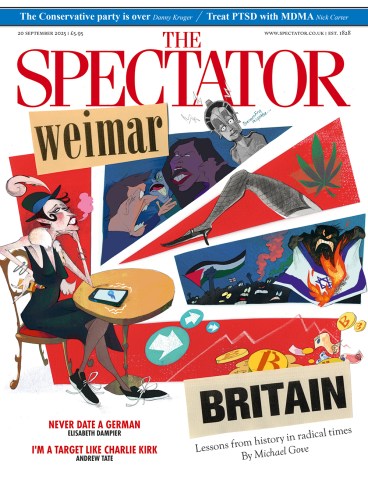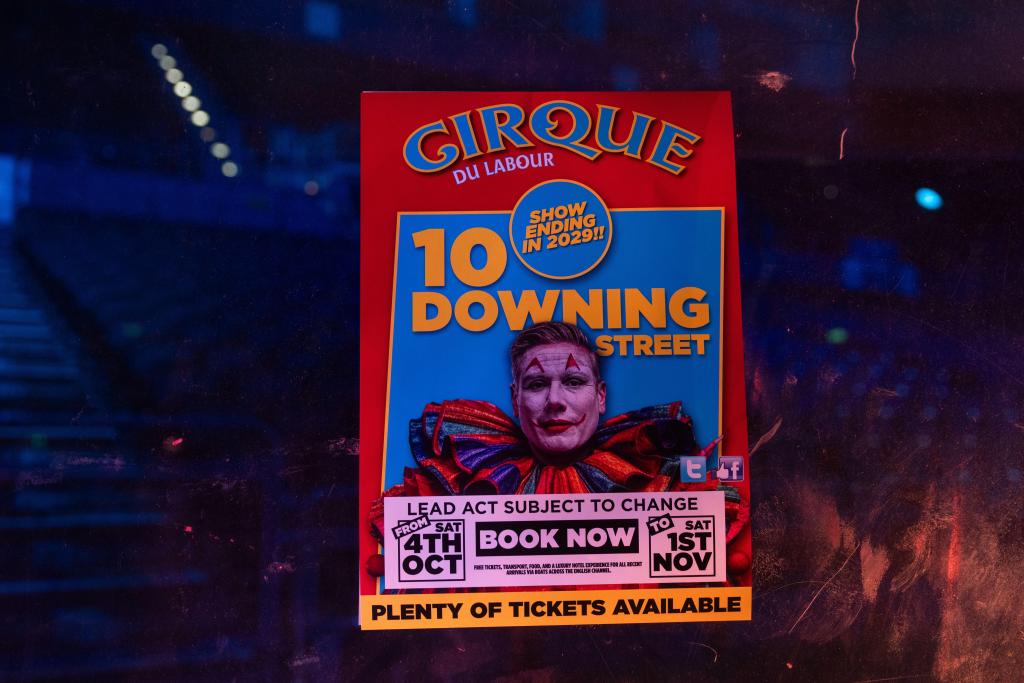
Politicians, authors, priests and the occasional Spectator editor have all served as the Oxford Union’s president over its 200-year history. Few among them would know what to make of George Abaraonye.
The debating society’s president-elect faces disciplinary proceedings for celebrating the killing of Charlie Kirk. Upon hearing of the conservative activist’s assassination – some four months after the pair had debated in person – Abaraonye posted ‘Charlie Kirk got shot loool’ on social media, along with other excited expletives in a WhatsApp group chat. He deleted the remarks but defended making them. Something is rotten in the state of Oxford when its chief debater celebrates the murder of a free speech advocate on another university campus.
The Union is one of the world’s most prestigious student societies. Statesmen and celebrated figures from Albert Einstein to Mother Teresa have visited it to speak and debate. Abaraonye’s role makes him a university poster boy – yet he matriculated with the unspectacular A-level grades of ABB. Oxford’s standards seem to be slipping.
For some, what happens in Oxford will be of little interest: an elite preoccupation of a political class who haven’t recovered from their own university days. But our leading universities should be elite – in the education they provide, the characters they nurture and the students they produce. As former Cambridge academic David Butterfield put it last year: ‘The ambitions of our whole education system are… pegged to the achievements at the very pinnacle of academia.’
It seems strange to have to argue that Oxford ought to produce more Gladstones than Abaraonyes. Surely it is better for our country when such institutions encourage those with a love for learning, steeped in the best of western civilisation and committed to public life and free inquiry. Instead, we see more and more nihilistic posturing. This can be explained by two malign forces: a perpetual expansion of universities that put quantity ahead of quality and the self-destructive vagaries of progressivism.
Something similar affects other eminent British institutions. The House of Lords is being stripped of some of its most thoughtful members in the name of progress, as Charles Moore wrote recently in these pages. English common law has been overridden by foreign bodies, despite a referendum that demanded national sovereignty. Even in popular culture we see the threat of a football regulator, and racing faces an uncertain future, with growing taxes and restrictions on betting.
Many shall have prizes; fewer shall have jobs; all shall have thousands of pounds of debt
But when it comes to education, our top universities really are, in that overused phrase, world-leading. Oxford, Cambridge and Imperial College London are regularly ranked in the global top ten. Universities UK, the sector’s advocacy organisation, claims that its members generate £265 billion a year. The world has benefited from the medical innovations, technological breakthroughs and contributions to the arts and literature that this figure represents.
Yet it is all at risk from grade inflation, lowered entry requirements, shrinking reading lists, a shift to coursework, online learning and open-book exams. The spread of artificial intelligence threatens to cut the human element out of a degree entirely. This abandonment of excellence is galling given recent improvements in schools across England – which came from rejecting precisely the forces now at work in our universities.
Today, higher education is prioritising numbers, not standards. Universities lose money on the average undergraduate so, unable to hike fees, pile the students high. This has meant recruiting from abroad, turning some institutions into visa mills – 40 per cent of those arriving to study in 2023 moved on to another visa within a year, up from 3 per cent in 2019. Yet the rot began with Tony Blair’s aspiration that half of all school-leavers should attend university.
The intention was noble – to expose as many people as possible to the best that has been thought and written – but the outcome has been to devalue degrees. Since 2000, the average graduate has gone from earning twice as much as a minimum wage worker to around 30 per cent more. Meanwhile, the share of students receiving a First or 2:1 has increased from 60 per cent to 77 per cent over the past 20 years. Many shall have prizes; fewer shall have jobs; but all shall have thousands of pounds of debt.
Economics aside, universities have also been tarnished by illiberal progressivism. There have been high-profile attempts to ‘cancel’ or ‘no platform’ leading thinkers; anti-Semitism has spread through student bodies with few attempts to counter it; and we have seen wholesale ‘decolonisation’ of the curriculum and condemnation of the canon rather than its study.
Last year, student numbers dropped for the first time in a decade, driven by a government clampdown on student visas. Even without this, universities face a demographic struggle, with the population of 18-year-olds falling from 2030. Two-fifths of institutions are in deficit; the upcoming merger between the University of Kent and the University of Greenwich is a sign of things to come.
But in this crisis lies an opportunity. Across the Atlantic, the success of new arts institutions such as the University of Austin and Ralston College shows the continuing appeal of rigorous teaching, a classical curriculum and a commitment to free inquiry. A thinning of the herd is overdue. Those that survive will need to return to first principles – the same principles that Kirk upheld when debating Abaraonye, and at his death.







Comments